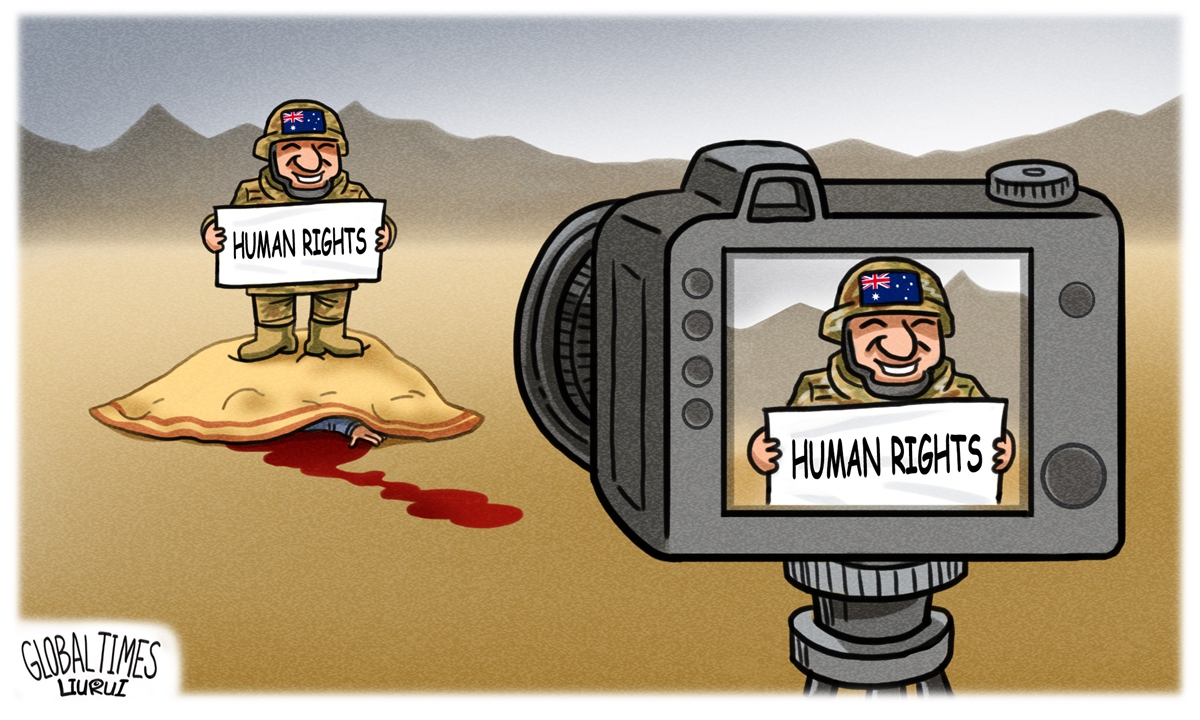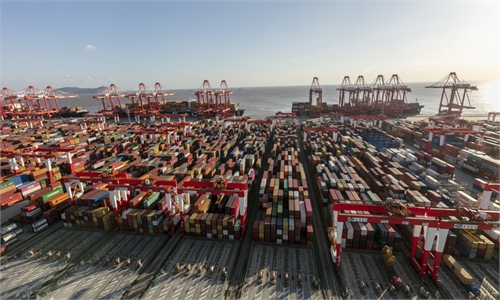‘Guilty conscience’ drives Australia’s decision to close embassy in Kabul

Illustration: Liu Rui/GT
The Australian government has announced that the country will close its embassy building in Kabul, Afghanistan on Friday "in light of the imminent international military withdrawal from Afghanistan." Australian Prime Minister Scott Morrison said the departure of the international and Australian forces from Afghanistan over the next few months "brings with it an increasingly uncertain security environment."By shutting down its embassy in Kabul, Australia has a guilty conscience because it is not as morally lofty as it claims to be. There has been credible evidence that Australian special forces unlawfully killed 39 unarmed civilians and prisoners during the war in Afghanistan, and even murdered people indiscriminately in the name of so-called anti-terrorism. This is obviously a violation of international law and human rights. Both Australia and the US have committed war crimes in Afghanistan, which is inhumane.
In the past, the US - as a "big brother" of Australia - served as a shelter for Australia, and the latter believed it could continue to act wantonly. But as US troops leave Afghanistan, Australian defense personnel in Kabul may become targets of retaliation. Considering the unlawful killings in the country, Canberra is worried about being retaliated against by local people. Under such circumstances, Canberra chooses to close its embassy and withdraw its remaining military personnel.
In order to quickly get out of the quagmire, the US, Australia and other countries choose to withdraw their troops from Afghanistan in an irresponsible manner, leaving chaos behind. "While our military contribution will reduce, we will continue to support the stability of Afghanistan through our bilateral partnership and in concert with our other nations," Morrison said in April. However, when Australia, the US and other countries' troops were stationed in Afghanistan, what they brought to the country was not "stability," but chaos and turmoil.
Australia has joined almost every major conflict that the US has participated in since the 20th century, including the Afghan War. The Afghan War was originally the US' retaliation against the September 11 terror attacks, which is related with the US' own political and national security needs. Unexceptionally, Australia chose to join in. However, as the war was prolonged for two decades, it has become an abnormal and illegal act of Western powers to invade and even occupy a sovereign country for the sake of their selfish interests.
As Australia closes its embassy in Kabul, it is also going to withdraw the last group of military personnel from Afghanistan. This will make it harder for the follow-up compensation to the Afghan victims of abuses and their families - and even harder to make Australia shoulder its due responsibility.
In fact, in December 2020, Human Rights Watch wrote to Morrison to remind him that Australia is obliged to compensate war crimes victims, saying it is "troubled" by recent comments suggesting the government is not currently considering reparations for Afghan families, according to a Guardian report. If Australian embassy is closed, the follow-up compensation will seem very difficult to negotiate for.
Judging from relative videos and photos, Australian troops conducted indiscriminate attacks and killings of Afghan civilians. This will make the Afghan people extremely disgusted with Australia, and also arouse the Islamic world's strong dissatisfaction with Australia's practices. Australia has created a strong negative image of itself in Afghanistan and the Islamic world. It cannot be ruled out that some extremist forces will take retaliation against Australia in the future. This kind of retribution will cause great anxiety for Australia.
The author is founding director of the Center for Strategic and Peace Studies at the China Foreign Affairs University. opinion@globaltimes.com.cn



